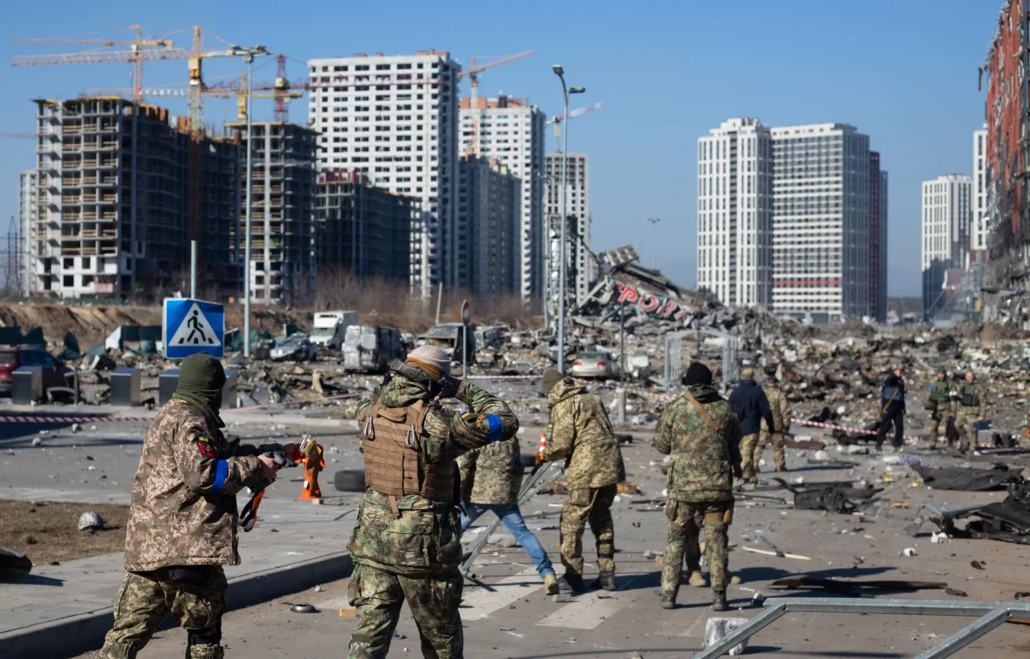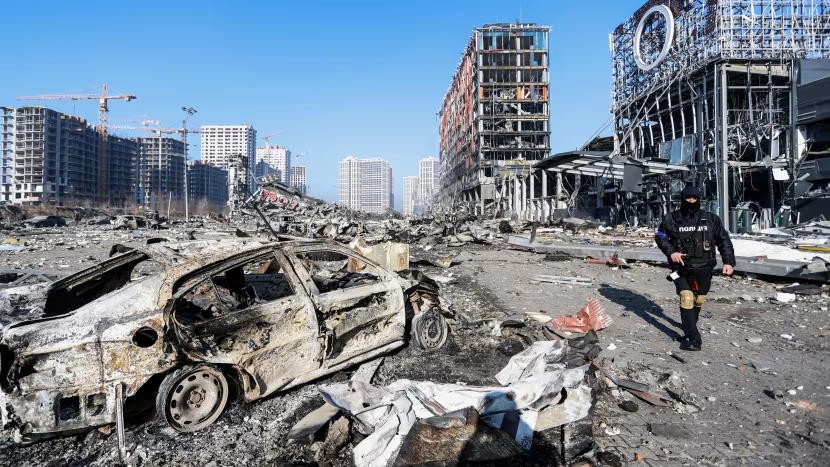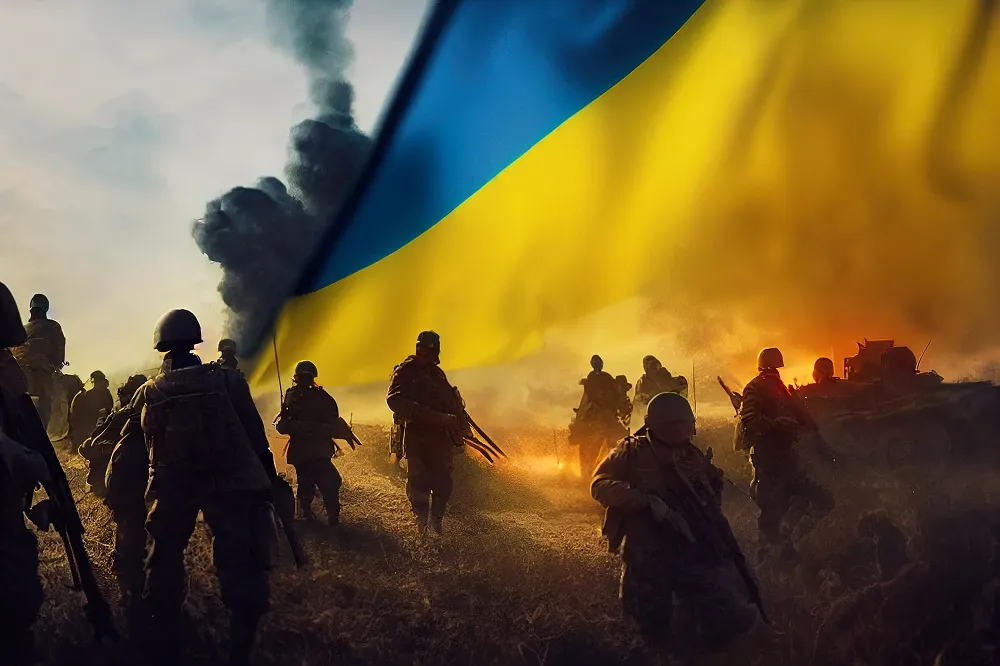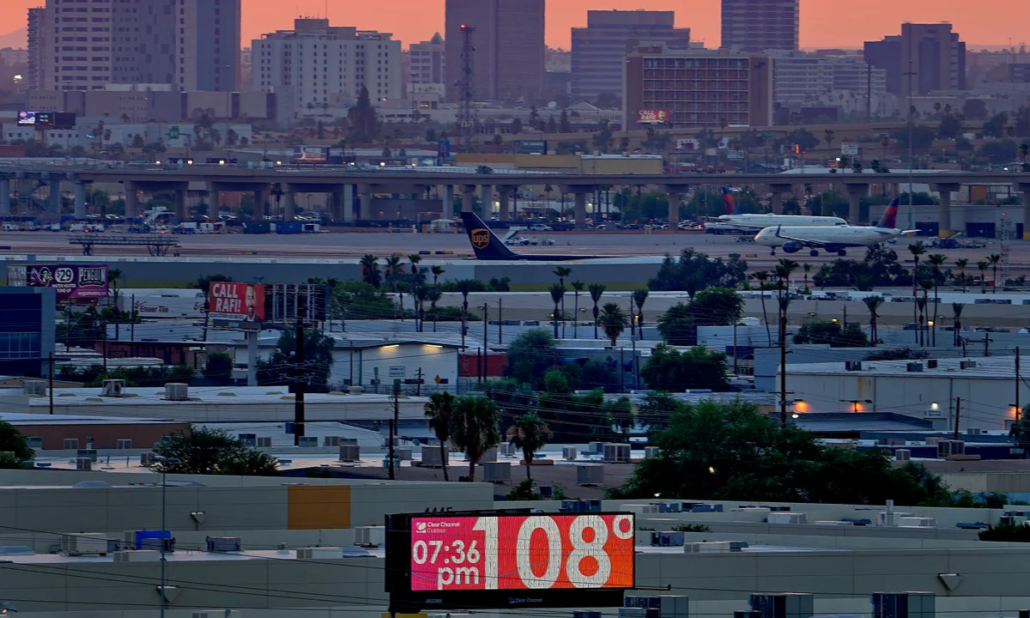A Russian attack on Lviv Ukraine killed seven people, including a mother, her three daughters, a baby, and another girl. Lviv’s mayor, Andriy Sadovy, reported that Russia used drones and hypersonic missiles in the strike early Wednesday.
Following this, Russia carried out its deadliest strike of the year on a military institute in Poltava, which killed 53. Meanwhile, explosions rocked Kyiv as air defenses targeted Russian missiles. In Kryvyi Rih, a hotel strike wounded five and damaged nearby apartments.

Russian ballistic missiles hit a military academy Ukraine
- Russian ballistic missiles hit a military academy and a nearby hospital in Poltava, killing 51 and injuring 271 in the deadliest attack of the war this year. The missiles struck just after the air raid alert sounded, when many were heading to bomb shelters, according to the Ministry of Defence.
- In the Zaporizhia region, a Russian missile hit a hotel, killing a woman and her eight-year-old son. Her husband and daughter suffered injuries, Ukrainian officials reported.
- Meanwhile, a Russian drone attack injured three workers at a power facility in Chernihiv, Ukraine’s Ministry of Energy confirmed. Russia also targeted railway infrastructure in Sumy and Dnipropetrovsk, damaging rolling stock, according to Ukraine’s railway operator.
- Rafael Grossi, head of the IAEA, said the Zaporizhzhia Nuclear Power Plant remains in a “very fragile” state after nearby attacks. He plans to visit the plant on Wednesday.
- In response to repeated Ukrainian strikes, Russia’s Defence Ministry deployed more air defense systems in Belgorod.
4 Ukraine Cabinet ministers submit resignations ahead of expected government shake-up
Four Ukrainian Cabinet ministers resigned Tuesday ahead of a planned government reshuffle, according to the speaker’s office. Deputy Prime Minister for European Affairs Olga Stefanishyna, Minister of Strategic Industries Oleksandr Kamyshin, Minister of Justice Denys Maliuska, and Minister of the Environment Ruslan Strilets all submitted their resignations.
The government has not yet responded to the resignations, and it is unclear if the ministers will take other senior roles. Ukrainian President Volodymyr Zelenskyy hinted last week at a reshuffle, while the head of his party in parliament said half of the ministers might be replaced.
Ukraine faces major challenges in the war, struggling to hold back Russian advances in the east and countering Moscow’s plans with its recent incursion into Russia’s Kursk region.

What are the recent airstrike statistics in Ukraine?
Recent airstrike statistics in Ukraine show a sharp increase in attacks, especially in urban areas. Here are some key points:
Frequency of Strikes: Airstrikes have risen significantly, with reports showing hundreds of attacks in recent months.
Casualties: Civilian casualties remain high. Thousands have been killed or injured since the conflict escalated.
Targeted Areas: Major cities like Kyiv, Kharkiv, and Odesa face frequent attacks, causing widespread infrastructure damage.
Military vs. Civilian Targets: While military installations are often named, many strikes have killed civilians and damaged homes.
International Response: The rise in airstrikes has drawn global condemnation, prompting calls for ceasefires and humanitarian aid.
Causalities:
The Russia-Ukraine War began in 2014, with tensions escalating dramatically in February 2022 when Russia launched a full-scale invasion. Russia aimed to expand its influence and control over Ukraine, while Ukraine fiercely resisted to defend its sovereignty. The conflict has led to severe destruction, loss of life, and displacement of millions.
As the war continues, both sides suffer heavy casualties. Ukrainian forces have defended key regions, while Russia has targeted cities and infrastructure. The war has not only impacted the people of Ukraine but has also affected global supply chains, energy prices, and international relations.
This war holds significant geopolitical importance. Western nations have imposed sanctions on Russia, provided aid to Ukraine, and heightened military support. Meanwhile, other global powers closely monitor the conflict, weighing their diplomatic and strategic interests in the evolving situation.






